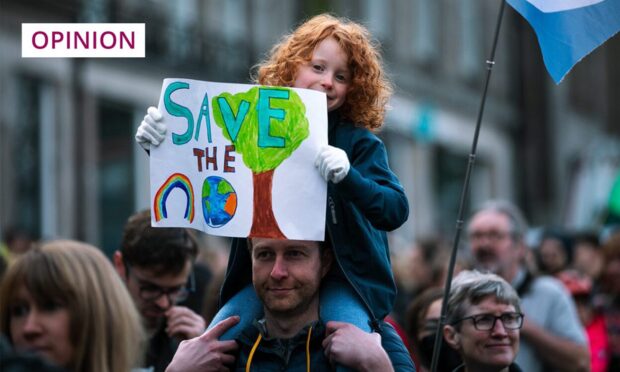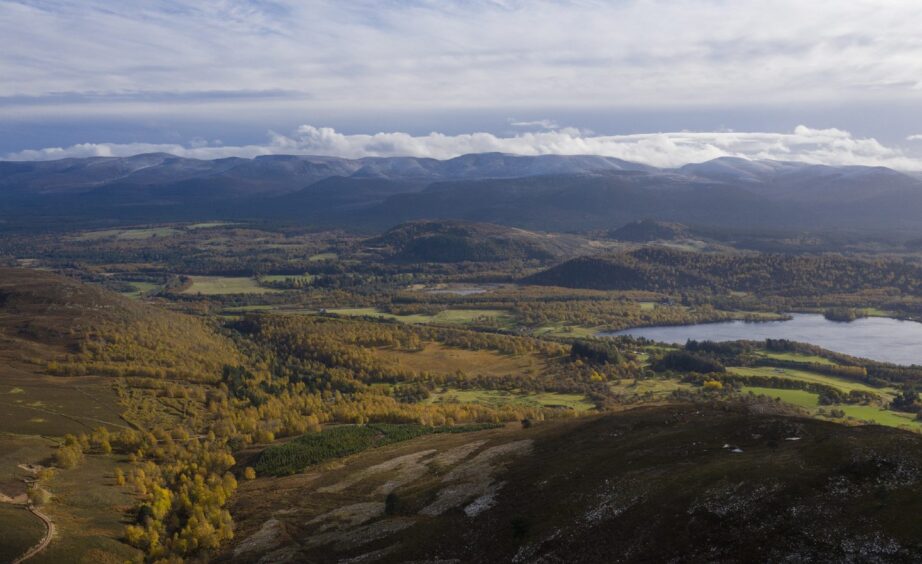Last month Rishi Sunak announced he was applying the handbrake to the UK government’s programme for reaching net zero carbon emissions by 2050.
Despite a summer which saw people across the world being flooded or burnt out of their homes by an impatient planet, he wanted to take a “more pragmatic, proportionate and realistic approach”.
While insisting the 2050 target still stood, he lengthened the introduction period for climate change measures.
His government also gave the green light to the Rosebank oil and gas field west of Shetland, the UK’s largest untapped oilfield.
These moves made in the hottest September on record, were welcomed by many from drivers of diesel/petrol cars to homeowners heated by gas boilers and the oil and gas industries.
But they enraged companies over the uncertainty created and all those who believe we face a truly existential threat as the planet temperature rises.
It was all widely seen as an attempt to put clear blue water between the Tories and Labour, in the build-up to a general election.
Recent polling, however, seems to suggest that UK voters are more committed to the difficult battle against climate change, than the PM may think.
One poll found only 22% trusted Mr Sunak to take on the challenge of global warming.
Meanwhile, north of the border, work continues on how to achieve the passage to a net zero carbon economy in a way that is economically and socially fair.
It is the Just Transition Commission (JTC) which advises the Scottish Government on how best to do that.
Bad news for owners of Scotland’s large estates
Last summer it published its second report. It wasn’t good news for the owners of Scotland’s large estates.
In a largely ignored section, it told ministers the huge inequalities of Scottish land ownership – “extreme asymmetries in ownership” – presented a serious obstacle to developing a carbon net zero economy through the Just Transition they were seeking.
The challenge had intensified with the arrival of the ‘green lairds’, although the JTC didn’t use the phrase.
But as readers of this column know, these are the corporate bodies and wealthy individuals who are buying huge areas of land to ‘greenwash’ their normal commercial activities.
Benefitting in the process, from the public money for the likes of tree planting and peatland restoration. All the while inflating land prices.
There has been criticism of how some are going about their publicly supported greenwashing.
Just this week in a blog respected land expert/campaigner Andy Wightman took issue with BrewDog’s approach on its Kinrara Estate in Strathspey.
The JTC said the Scottish Government should address the problem of the extreme asymmetries through meaningful land reform.
This is to enable land owned by communities to play a more prominent role in the climate change fight, as they have important advantages.
It was a direct challenge to the argument promoted by estate owners’ representatives – that the scale of their large landholdings offered economies of scale for the necessary environmental programmes.
The JTC is determined to get the message across
Not a great deal of public or political attention seems to have been paid to this section of the JTC advice in the last year. But in another paper published in the middle of last month entitled ‘Communicating Change A Briefing on Land Use and Agriculture’, it is clear the JTC is determined to get the message across.
It stated: “The net zero and nature restoration transition will be perceived as unjust if the familiar inequalities that define the sector, most obviously in land ownership, are replicated or expanded, particularly via carbon and biodiversity markets.
“Ecosystem and biodiversity markets have the potential to contribute significantly towards net zero and nature recovery targets, whilst providing new income streams in the sector, but these markets will create winners and losers, with those most likely to lose out including tenants, crofters and local communities.”
This obviously remains a central element in the expert opinion being given to ministers. It could now be taken to the highest level of international thinking on global warming.
At the end of last month, the JTC chairman Jim Skea, Emeritus Professor of Sustainable Energy at Imperial College London, stood down.
He had been elected as the new Chair of the UN’s Intergovernmental Panel on Climate Change (IPCC).
In his resignation letter to Màiri McAllan, Cabinet Secretary for Net Zero and Just Transition, Professor Skea wrote: “Much remains to be done, but I feel that we have made good progress in establishing clear principles for action, and have made a start on the sectoral Just Transition Plans that are needed to make just transition a reality.
Scotland remains an exemplar on the international stage, and we must strive to justify that position.”
It won’t be justified if in the end, it is tenants, crofters and local communities who lose out in national and international efforts to save the planet.
David Ross is a veteran Highland journalist, author and a supporter of Community Land Scotland


Conversation